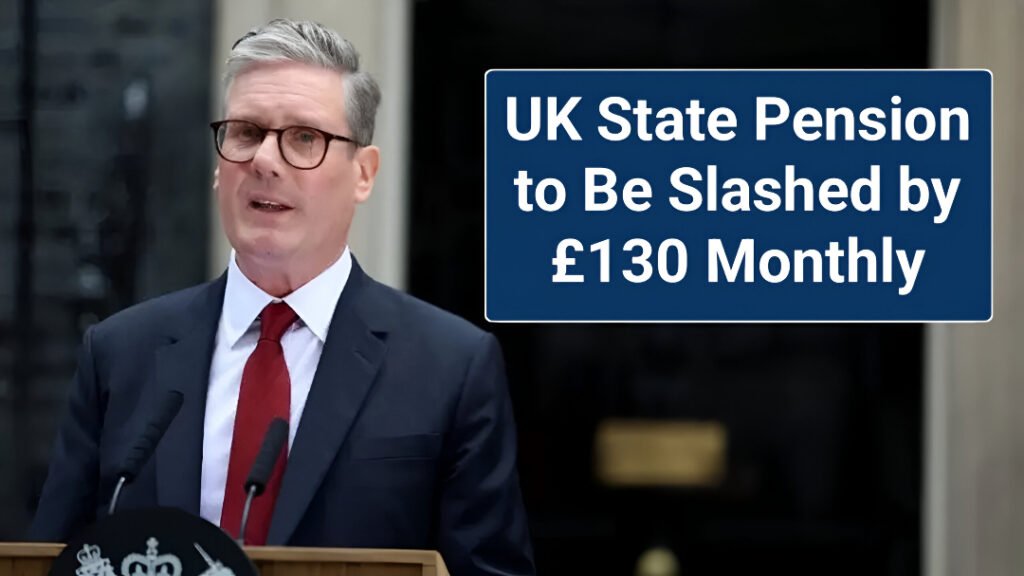Hello Everyone, The UK Government has recently confirmed a major update regarding the state pension, which is set to impact millions of retirees from April 2025. According to the new policy, the monthly state pension could be reduced by around £130, leaving pensioners with a tighter budget. This announcement has sparked concern among elderly citizens who heavily depend on their pension income to meet essential needs like housing, food, and healthcare.
For years, the state pension has acted as a financial safety net for UK retirees, ensuring a minimum standard of living after retirement. However, the proposed cut is raising serious questions about the financial stability of older people, especially those who do not have additional savings or workplace pensions. Let us take a closer look at the details of this change and what it could mean for pensioners.
Why the Cut is Happening
The government has argued that the cut is part of a wider reform aimed at reducing the rising cost of state pensions. With life expectancy increasing, more people are drawing pensions for longer periods, putting pressure on public finances. Officials believe that without such adjustments, the sustainability of the pension system may come under threat in the coming decades.
Critics, however, see this move as unfair to retirees who have contributed to the system through National Insurance payments all their working lives. They argue that cutting pensions during a period of inflation and high living costs could create financial hardship for those already struggling. Many advocacy groups are urging the government to reconsider and find alternative funding solutions.
Impact on Retirees
For pensioners, a £130 monthly reduction translates to losing more than £1,500 per year. This loss could significantly affect everyday life, especially for those relying solely on the state pension. Rising energy bills, healthcare costs, and food prices mean that even a small cut feels like a heavy burden on fixed incomes.
Retirees living alone or without family support may find it particularly challenging to cope. Many fear that the cut will force them to make tough choices between essentials, reducing their quality of life. Charities have already warned that such measures could increase poverty among the elderly, leading to higher demand for support services.
Key Concerns Raised
Several organisations and unions have spoken out against the upcoming reduction, highlighting the potential risks. Pensioner advocacy groups have launched campaigns to protect the triple lock system, which ensures pensions rise with inflation, earnings, or 2.5%, whichever is higher.
-
Pension experts say the cut may discourage younger workers from trusting the pension system.
-
Retiree associations warn of a rise in pensioner poverty and inequality.
-
Campaigners are demanding a review before the changes are officially implemented.
These concerns underline the widespread fear that the new pension policy could weaken the financial security of an entire generation of elderly citizens.
Possible Alternatives
Instead of cutting pensions, experts have suggested exploring other options that balance sustainability with fairness. For example, increasing National Insurance contributions for higher earners could generate more revenue without affecting vulnerable retirees. Others believe that reforming tax relief on private pensions might help close the funding gap.
-
Raising retirement age gradually rather than slashing pensions.
-
Encouraging workplace pension schemes with stronger incentives.
-
Adjusting benefits for wealthier retirees while protecting lower-income groups.
These ideas reflect a growing demand for solutions that do not disproportionately affect pensioners who are already struggling with rising living expenses.
Government’s Response
The UK Government has defended its decision by pointing to the financial challenges facing the country. Officials claim that without significant reforms, future generations will be forced to bear an even heavier burden. They argue that this adjustment is necessary to ensure the long-term sustainability of pensions.
However, ministers are also under pressure to provide reassurance that vulnerable groups will be protected. Some have hinted at possible compensation schemes or support packages to help the poorest pensioners adjust to the reduced payments. Until official details are finalised, uncertainty continues to loom over millions of retirees.
FAQs – UK State Pension Cut 2025
1. How much will the state pension be reduced in 2025?
The state pension is expected to be reduced by £130 per month, which equals around £1,560 annually.
2. When will the new pension cuts take effect?
The changes are scheduled to come into effect from April 2025.
3. Who will be affected by the pension cut?
All retirees currently receiving the full state pension are expected to be impacted by this reduction.
4. Will there be any support for low-income pensioners?
The government has suggested possible relief measures, but no official scheme has yet been announced.
5. Can this decision still be reversed?
There is strong opposition, and campaigning is ongoing. However, until Parliament debates or revises the policy, the cut remains in place.
Final Thoughts
The upcoming £130 monthly cut to the UK state pension in 2025 is set to bring financial challenges for millions of retirees. While the government sees this as a step towards sustainability, pensioners and advocacy groups view it as a major setback in times of rising living costs. With ongoing debates and public pressure, there is still hope that fairer alternatives could be introduced. For now, retirees must prepare for a future with tighter budgets and keep an eye on further announcements from the government.
